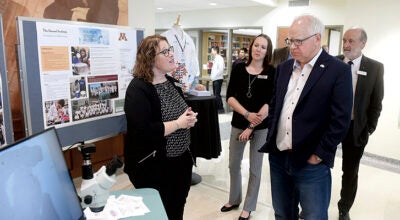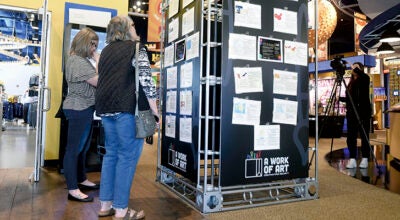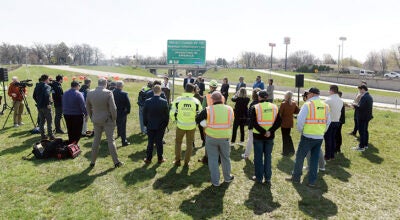Minnesota must find ways to pay for new roads
Published 12:03 pm Thursday, August 28, 2014
By Tom Scheck, MPR.org/90.1 FM
ST. PAUL — When drivers for UFC Farm Supply make deliveries across southern and western Minnesota, they get a first-hand look at the sorry condition of the state’s roads.
Based in Maple Plain, Minnesota the agricultural cooperative delivers heating oil and propane, fertilizer and light equipment like skid steer loaders. On rough, roads, going the speed limit can be hard on drivers and equipment, company vice president Dean Meyer said. That slows them down.
“They’ll drive even slower and that takes away your efficiency, your ability to deliver product on a timely fashion,” he said.
Meyer’s concern about the condition of the roads reflects widespread concern in Minnesota, where many want new construction. The demand presents a dilemma for policy leaders, as the Minnesota Department of Transportation projects a $12 billion shortfall over the next 20 — just to maintain the current road and bridge system.
To make matters worse, state transportation officials project that gas tax revenue, the largest funding stream for road and bridge projects, will decline as people drive less and cars become more fuel efficient.
Meanwhile, the campaign for governor has so far focused largely on jobs, taxes and health care.
During his first term, Gov. Mark Dayton declined to make any changes to transportation funding and repeatedly rejected calls for a gas tax increase to help pay for more projects. But he said he would make transportation a key issue in a second term.
Dayton, who has said he has no plans to raise other taxes if he wins, won’t rule out a tax increase to pay for transportation projects.
“There’s no free lunch. The federal government isn’t going to increase its investment in highways and roads and bridges and public transit to any significant degree, so it’s going to have to come from within.”
Dayton wouldn’t specify whether he would support a gas tax hike, a sales tax dedicated to transportation or other alternatives. He said, however, that he wants the public and the Legislature to consider the options before the 2015 legislative session.
“But these people who say we’ll be able to increase our investment in transportation at no additional cost to anyone are living on another planet,” Dayton said.
Hennepin County Commissioner Jeff Johnson, the Republican nominee for governor, said Minnesota does not need a gas tax increase. Instead, he said the state’s transportation problem could be solved by reprioritizing spending.
“All of the energy and focus now is on every form of transportation but roads and bridges, whether it’s light rail or commuter rail or high speed rail or street cars or bike trails or sidewalks or something else,” Johnson said. “Everything has moved above it on the list of priorities and that’s backwards. Our priority has to be on our roads and bridges. If we do that there will be plenty of money.”
Hannah Nicollet, the Independence Party candidate for governor, isn’t ruling out a tax hike to pay for transportation projects. But first, she said, transportation funding should be focused on roads and bridges.
“We pool all of the money and we just reprioritize it to roads and bridges, and if we end up short after majoring in the majors then we can look at a gas tax increase or something of the like,” she said.
The Legislature will also have a major say in determining transportation funding. Republicans have resisted tax hikes of any kind and the Minnesota Chamber of Commerce says it won’t support a revenue increase until the Department of Transportation can demonstrate it is using the money it has now as efficiently as possible.
While politicians debate how to pay for improvements, those whose jobs depend on good roads, bridges and transit say the transportation has been ignored long enough.
“It seems like it has definitely fallen among deaf ears for the most part,” Meyer said. “It hasn’t felt like there has been a sense of urgency whatsoever.”





